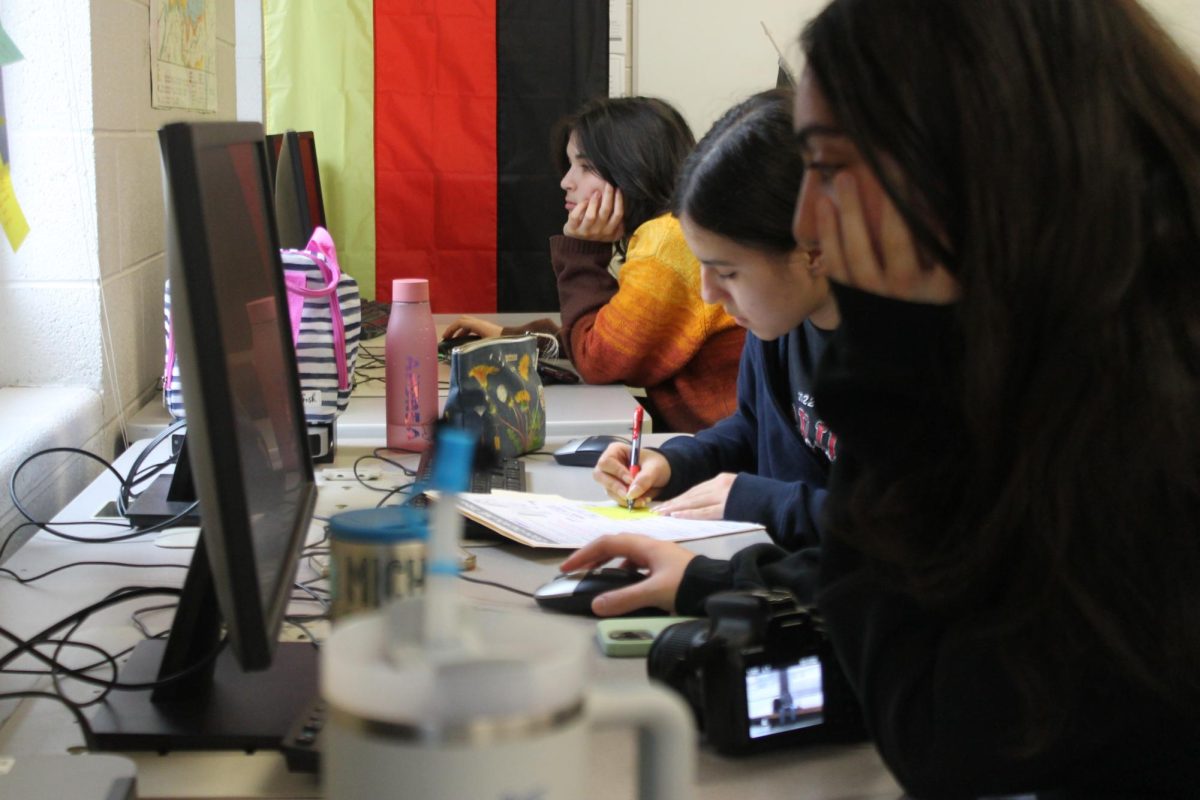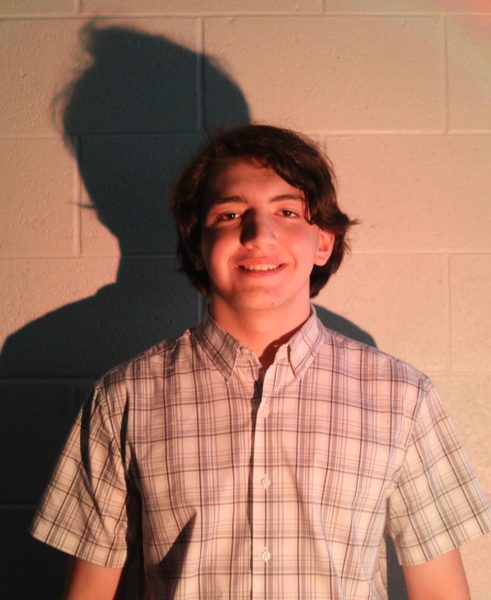The Troy Gladiator Yearbook: the very yearbook that brings back memories to alumni and students alike. But how does the intricate quilt of the yearbook work? With photos, stories, supplements and everything in between, what keeps this symphony together? The answer is editors. The backbone of any publication, they are the unsung stars that oil the boilers and keep the fire stoked. Some of these editors are graduating. These are their stories.
Alex Bos is a Design Editor for The Gladiator, the Troy High School Yearbook. She has been with the yearbook for 2 years. She is also a Group Leader, helping out her fellow “yerds.” “Being a Group Leader is special, I get to see my group grow, and get to work next to one of my closest friends, Miya.”
Miya Hashem, like Bos, is a Design Editor and also leads a group of other staff members. She said the highlight of her yearbook career was the journalism conference. “I loved going and actually seeing all the speakers, and loved being with yearbook and newspaper staff.”
Hashem offers valuable insight into the inner workings of the yearbook. “We work on two to three spreads per deadlines, and we have six or seven deadlines per book.”
To those looking to join yearbook, she also offers advice: “Try it out. It’s super nerve-racking in the beginning, but once you get it figured out, it’s really fun.”
She leaves with a note: “There is a sense of community. You make friends and you make memories. If I could, I would have everyone take it.”
Owen Cai is a Photo Editor and has been with yearbook for two years. He also supervises a group of yearbook staff members. The highlight of his yearbook career was, “the journalism conference last year. Anyone with the option should go. It was really interesting meeting with people from the industry.”
He also offered some advice for prospective yearbook staff: “Be open. When I joined, I was really closed off, and you have to learn to communicate. It’s a valuable class that teaches you to do that. Be involved. Don’t be afraid to ask questions, and be confident.”
Cai’s advice to new yearbook students is also insightful. “You’ve got to have communication skills to make the book look good.” He continues, “This isn’t a blow off class, and don’t go into it thinking it’s a blow off class. It’s a lot of hard work, but it’s also really fun. You make friends and learn a lot.”
Graceanne Fentress is a Mod Editor for the yearbook. She had some interesting things to say about the class’ perception as a whole. “Some people say that yearbook isn’t a real journalism class, that it’s just a collection of pictures, but it is a history book, capturing moments of our students throughout the year.”
When asked to give advice to new yearbook staff, she responded, “It’s stressful. I’ve cried, but it has taught me lessons I wouldn’t have learned otherwise.”
Sierra Sarsfield is a Co-Editor-In-Chief. She has a lot of responsibility, but with it comes an experience like no other. She does a lot, from deciding the overall theme of the yearbook to picking the specific colors to cover design.
She also plays a big leadership role in the actual class. “From helping other staffers to actually teaching, it is a student-led publication, no doubt,” she said with a chuckle.
But what wisdom comes from this position? In her own words, “The payoff of actually getting and holding the book is worth it. Watching something come together is worth all the stress. I’m happy with it.” It also impacted her business and social skills, stating, “I learned to be more extroverted, and how to actually talk in a professional setting. Take the class.” It cannot be emphasized in text how much she wants others to take the class.
Next time you pick up a yearbook, think back to what made it happen. Think about the people that made it possible. Think about all the stress and planning that went into it, and think about what memories that yearbook holds, both on it’s pages and when it was made. Good luck, seniors!



